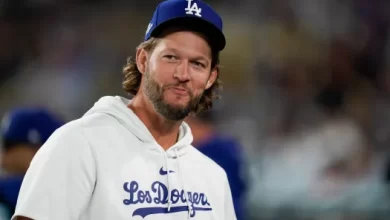Breaking news: Former LA Dodger prosecutors want the Ninth Circuit to apply a rescinded plea agreement in a case involving illicit sports betting.

Breaking news: Former LA Dodger prosecutors want the Ninth Circuit to apply a rescinded plea agreement in a case involving illicit sports betting.
When former Los Angeles Dodgers slugger Yasiel Puig goes on trial for his alleged involvement with an illegal sports betting ring, federal prosecutors will use the admissions from a since-retracted plea deal, they argue before a Ninth Circuit panel on Monday.
When Puig refused to enter a guilty plea to the charge that he had lied to federal investigators about the sports betting operation last year, the federal judge’s ruling that he had not broken any binding plea agreements was upheld. However, the three-judge appellate panel made no indication during the Pasadena, California, hearing about their intention to reverse that ruling.
Puig entered into a plea deal with a waiver allowing the government to use the so-called factual basis—a list of his allegedly illegal acts—as evidence against him in court should he intentionally violate the terms of the agreement.
Though Puig never entered a guilty plea in open court, the judge last year agreed with Puig’s attorneys that the plea deal he struck with the prosecution wasn’t legally enforceable and wasn’t broken. This meant that the release that would have allowed his confessions to be used against him in court could not be put into effect.
Rajesh Srinivasan, an attorney from the Los Angeles U.S. Attorney’s office, told the panel that “as seven other circuits have recognized, these waivers are equally enforceable when they appear in plea agreements.” “This court should join those circuits and reverse the district court’s contrary ruling.”

Donald Trump appointee U.S. Circuit Judge Daniel Collins was willing to acknowledge that, in accordance with U.S. Supreme Court precedent, a defendant may waive some evidentiary challenges as part of a plea agreement, but that didn’t address the question of whether a legally binding plea agreement existed in the first place if a federal judge hadn’t accepted a guilty plea.
Regarding Srinivasan’s claim that a plea agreement is a private contract between the government and the defendant, “not tied to the taking of the guilty plea,” Collins pointed out that the government has effectively argued in a significant number of cases before appellate courts that it is not bound by a plea agreement and that it is free to withdraw from it at any time before the plea is entered if it does not agree.
“Is it your position that we should reject those cases as wrongfully decided?” Collins queries.
Collins stated that if this is the case, there would be disagreements regardless of the panel’s decision in the Puig case since in a number of cases in other appellate circuits, the courts have let the government to withdraw from plea deals before a judge has approved them.
According to the judge in those cases, the prosecution contended that the plea agreement was unenforceable until a plea was submitted into court.
“To the extent that those decisions say that the government is not bound by plea agreements, we would disagree with those cases,” Srinivasan stated. “That is important because defendants should be able to depend on the government’s promises.”
Puig’s lawyer, Elliott Averett, drew attention to the Ninth Circuit’s longstanding ruling that a plea deal that hasn’t been approved by a federal judge isn’t legally binding on the government or the accused.
Furthermore, Averett claims that Puig’s plea deal does not clearly state that the renunciation of evidentiary challenges included in it was enforceable before he entered and was accepted for a plea.
Collins pointed out that this was in conflict with the plea agreement’s actual language, which states that it becomes operative as soon as all required parties have signed it.
Similarly, Joe Biden appointee U.S. Circuit Judge Anthony Johnstone questioned where in the plea bargain it is specifically stated that Puig and the prosecution’s agreement is subject to approval by a federal judge.
According to Averett, “the parties are negotiating against this background principle,” which is analogous to the implied covenant of good faith and fair dealing included in all contracts. “Absent some clear statement, I don’t think it falls out of the agreement.”
U.S. Circuit Judge Holly Thomas, another appointee of Joe Biden, served as the panel’s third judge.
After being moved to the Cincinnati Reds in 2019, Puig, 33, began his alleged connection with the illegal betting industry. Puig played for the Los Angeles Dodgers from 2013 to 2018. His guilty deal contained no allegations that he wagered on games in which he took part.
In 2022, Puig was questioned by Homeland Security officials and lied to them about talking about gambling with an unnamed agent for an illegal sports betting enterprise, according to Puig’s guilty bargain. In actuality, the government claimed, Puig and this agent had exchanged hundreds of phone calls and text messages regarding wagering on sports.
Wayne Nix, the owner of the illicit sports betting enterprise, entered a guilty plea in 2022. About 20 years ago, Nix started his bookmaking company. Thanks to his connections in the sports industry, he was able to build a clientele that included both professional and amateur sportsmen. To help with the business, he hired three former professional baseball players.


